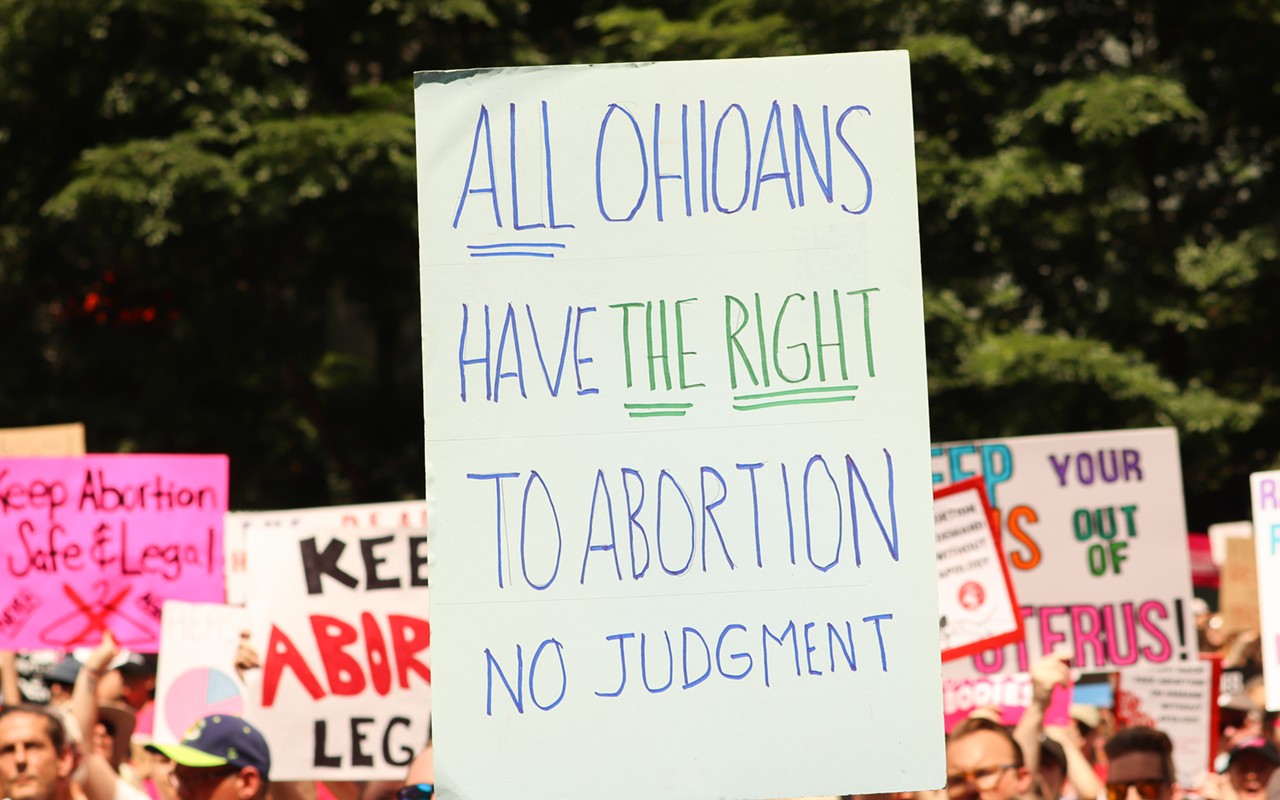
Photo: firstdistrictcoa.org
The 1st District Court of Appeals declined to consider Ohio attorney general David Yost's appeal to overturn an injunction on the state’s six-week abortion ban in a 3-0 decision.
Abortion in Ohio will remain available until the 22nd week of pregnancy for now, thanks to a decision from an appeals court.
On Dec. 16, the 1st District Court of Appeals declined to consider Ohio attorney general David Yost's appeal to overturn an injunction on the state’s six-week abortion ban. The appeal was denied in a 3-0 decision by the Court of Appeals, sending the case back to the Hamilton County Court of Common Pleas where the injunction had originated.
Preterm Cleveland v. Dave Yost
Previously, Ohioans had up to 22 weeks to seek an abortion.
In the case Preterm Cleveland v. Dave Yost, Jenkins pointed to affidavits submitted to the court that tell stories of pregnancies forced to continue past the six-week mark despite those pregnancies not being viable. Other stories included patients who stopped cancer treatment because of the ban or fled to neighboring states to terminate pregnancies that were the result of rape.
Jenkins had previously issued two temporary injunctions in Preterm Cleveland v. Dave Yostbefore issuing the indefinite injunction against the abortion ban in October. Jenkins said Ohio’s constitution does not allow women to be subject to such reproductive regulations.
Yost’s office appealed Jenkins injunction on Oct. 13, claiming the abortion ban had become the status quo in Ohio following the U.S. Supreme Court’s June 24 decision in Dobbs v. Jackson Women’s Health Organization, effectively overturning the abortion-granting landmark decision in Roe v. Wade.
In part, the 1st District Court denied Yost’s appeal because Jenkins' injunction is indefinite, but not permanent, according to court documents.
“A preliminary injunction which acts to maintain the status quo pending a ruling on the merits is not a final appealable order,” the court’s opinion reads.
What's next for abortion in Ohio
Yost’s office is expected to take the case to the Ohio Supreme Court, which became majority conservative after the November election.Ohioans for Reproductive Freedom, a cohort supported by the American Civil Liberties Union, launched a campaign in December to put a ballot measure before Ohio voters that would amend the state’s constitution to explicitly protect reproductive freedom.
The success of such a ballot measure could hinge upon the results of House Joint Resolution 6, which, if passed, would require a 60% supermajority in order for constitutional amendments to succeed, rather than the current simple majority of more than 50%.
State rep. Brian Stewart, R-Ashville, and secretary of state Frank LaRose introduced HJR6 in November to “safeguard Ohio’s constitution from special interests,” but the proposal ran out of steam soon after. During the legislature's year-end lame duck session, hundreds of demonstrators flooded the Statehouse in opposition to HJR6 on Dec. 13. House speaker Bob Cupp said he was “doubtful” the resolution had enough support to pass, and there are no more remaining sessions in this general assembly.
Stewart admitted the math was “unworkable” for his proposal to pass, but indicated HJR6 is not dead in the water.
“Looking forward to January,” he tweeted.
Coming soon: CityBeat Daily newsletter. We’ll send you a handful of interesting Cincinnati stories every morning. Subscribe now to not miss a thing.
Follow us: Google News | NewsBreak | Reddit | Instagram | Facebook | Twitter


